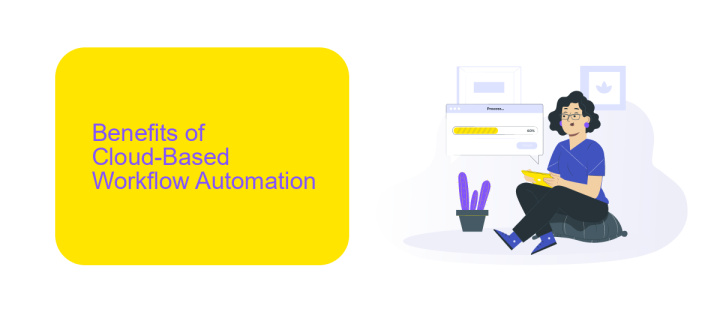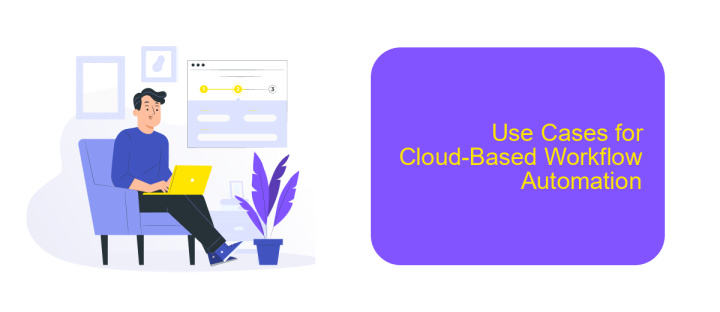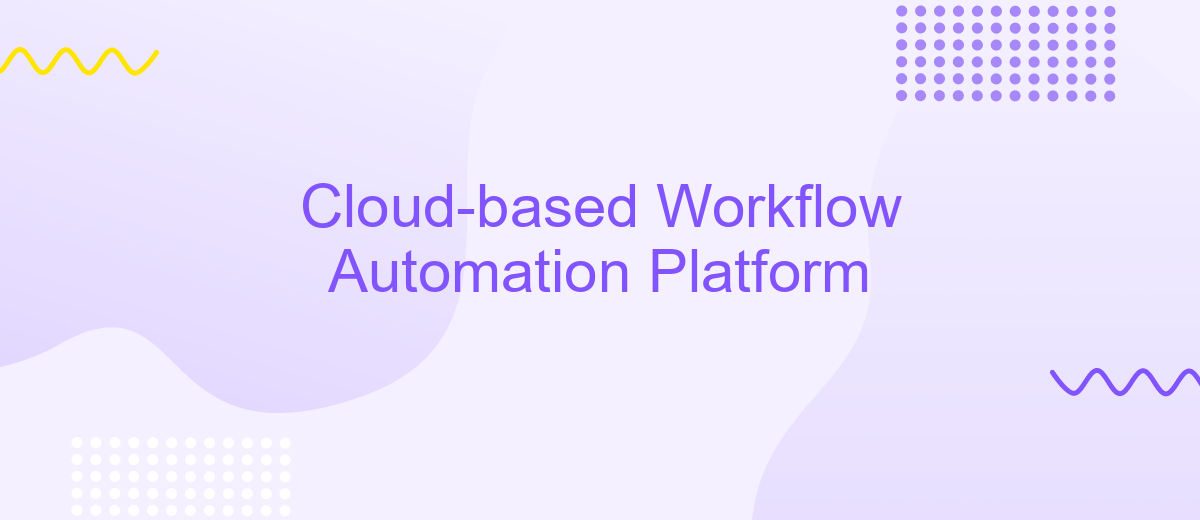Cloud-based Workflow Automation Platform
In today's fast-paced digital landscape, businesses are constantly seeking ways to enhance efficiency and streamline operations. A cloud-based workflow automation platform offers a transformative solution by automating repetitive tasks, improving collaboration, and ensuring seamless integration across various systems. This article explores the key features, benefits, and real-world applications of such platforms, demonstrating how they can revolutionize your organization's productivity and agility.
Introduction
In today's fast-paced business environment, cloud-based workflow automation platforms have become essential for streamlining operations and enhancing productivity. These platforms provide businesses with the ability to automate repetitive tasks, integrate various applications, and ensure seamless data flow across different systems.
- Automate repetitive tasks to save time and reduce errors
- Integrate multiple applications for a cohesive workflow
- Enhance data accuracy and consistency
- Improve overall operational efficiency
One notable example of such a platform is ApiX-Drive, which allows users to easily set up integrations between various services without the need for coding skills. By leveraging ApiX-Drive, businesses can automate complex workflows, connect diverse applications, and manage data more effectively. This results in improved efficiency and the ability to focus on more strategic initiatives.
Benefits of Cloud-Based Workflow Automation

Cloud-based workflow automation platforms offer numerous benefits, making business processes more efficient and streamlined. One of the key advantages is the ability to access and manage workflows from anywhere, ensuring that teams can collaborate seamlessly regardless of their location. This flexibility not only enhances productivity but also reduces the dependency on physical office spaces. Additionally, these platforms provide real-time updates and analytics, enabling businesses to make informed decisions quickly and adapt to changing circumstances with agility.
Another significant benefit is the ease of integration with various tools and services. Platforms like ApiX-Drive simplify the process of connecting different applications, allowing for smooth data transfer and communication between systems. This integration capability eliminates manual data entry and reduces the risk of errors, ensuring that information flows consistently across all platforms. Furthermore, automated workflows can be customized to meet specific business needs, providing a tailored solution that enhances operational efficiency and drives growth.
Key Features of a Cloud-Based Workflow Automation Platform

A cloud-based workflow automation platform offers numerous features that streamline business processes and enhance productivity. These platforms are designed to integrate seamlessly with various applications and services, allowing for efficient management and automation of tasks.
- Scalability: Easily scale operations up or down based on business needs without worrying about infrastructure limitations.
- Integration Capabilities: Connect with a wide range of applications and services, such as ApiX-Drive, to automate data transfer and streamline workflows.
- Real-time Monitoring: Track the status of workflows in real-time, enabling quick identification and resolution of issues.
- User-friendly Interface: Intuitive dashboards and drag-and-drop functionality make it easy for non-technical users to create and manage workflows.
- Security: Robust security measures, including encryption and access controls, ensure that sensitive data is protected.
By leveraging these key features, businesses can significantly reduce manual effort, minimize errors, and improve overall efficiency. Cloud-based workflow automation platforms like ApiX-Drive provide the tools necessary to optimize and automate complex processes, helping organizations to stay competitive in a fast-paced digital landscape.
Use Cases for Cloud-Based Workflow Automation

Cloud-based workflow automation platforms are transforming the way businesses operate by streamlining processes and reducing manual tasks. These platforms offer a wide range of use cases that cater to various industries and business needs, enhancing efficiency and productivity.
One of the primary use cases is the automation of repetitive tasks, such as data entry and report generation. By automating these tasks, businesses can save time and reduce the likelihood of human error. Additionally, cloud-based platforms can facilitate seamless integration with other software and services, ensuring that data flows smoothly across different systems.
- Automated data entry and processing
- Report generation and distribution
- Integration with CRM and ERP systems
- Customer support automation
- Marketing campaign management
For example, ApiX-Drive is a service that helps businesses set up integrations effortlessly, enabling data to be transferred between applications without manual intervention. This not only saves time but also ensures data consistency and accuracy. By leveraging cloud-based workflow automation platforms, organizations can focus on strategic tasks, drive growth, and improve overall operational efficiency.
- Automate the work of an online store or landing
- Empower through integration
- Don't spend money on programmers and integrators
- Save time by automating routine tasks
Choosing the Right Cloud-Based Workflow Automation Platform
Choosing the right cloud-based workflow automation platform requires careful consideration of your organization's unique needs and objectives. Start by evaluating the platform's ease of use, scalability, and flexibility. Ensure it supports the specific workflows and processes you aim to automate. Additionally, consider the platform's integration capabilities with your existing tools and systems. A platform like ApiX-Drive can be invaluable, offering seamless integration with a wide array of services and applications, thus simplifying the automation of complex workflows.
Security and compliance are also critical factors when selecting a workflow automation platform. Verify that the platform adheres to industry standards and regulations relevant to your business. Look for features such as data encryption, user authentication, and regular security updates. Furthermore, assess the platform's customer support and training resources to ensure your team can effectively utilize it. By thoroughly evaluating these aspects, you can choose a cloud-based workflow automation platform that enhances efficiency and drives your organization towards its goals.
FAQ
What is a cloud-based workflow automation platform?
How can a cloud-based workflow automation platform benefit my business?
What types of tasks can be automated using a cloud-based workflow automation platform?
Is it difficult to set up and use a cloud-based workflow automation platform?
How do I integrate different applications and services with a cloud-based workflow automation platform?
Apix-Drive is a universal tool that will quickly streamline any workflow, freeing you from routine and possible financial losses. Try ApiX-Drive in action and see how useful it is for you personally. In the meantime, when you are setting up connections between systems, think about where you are investing your free time, because now you will have much more of it.


